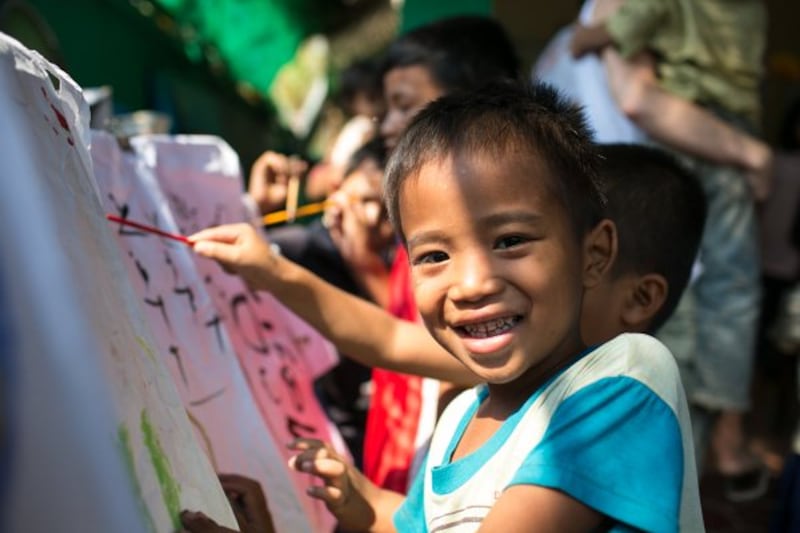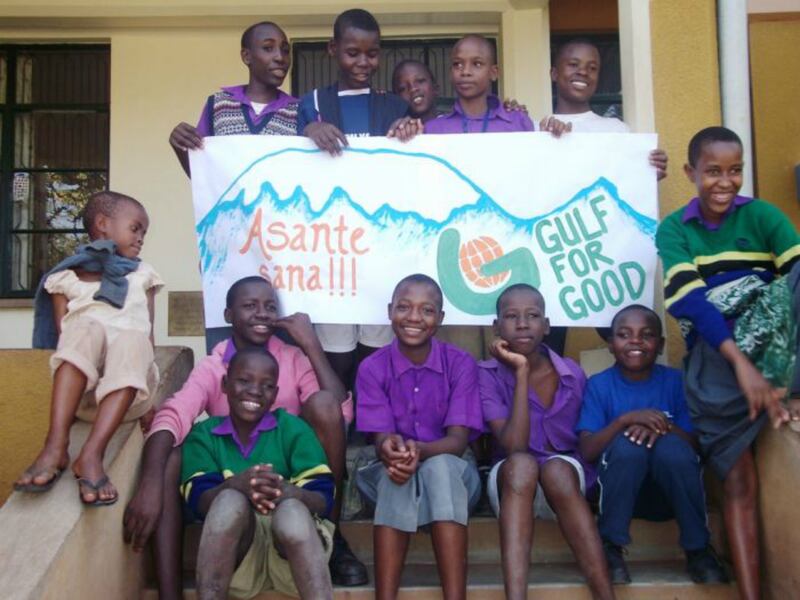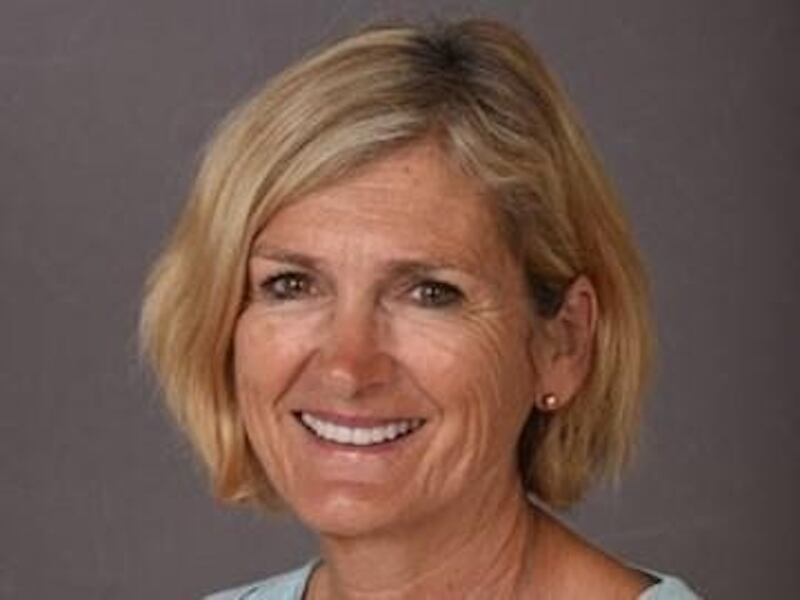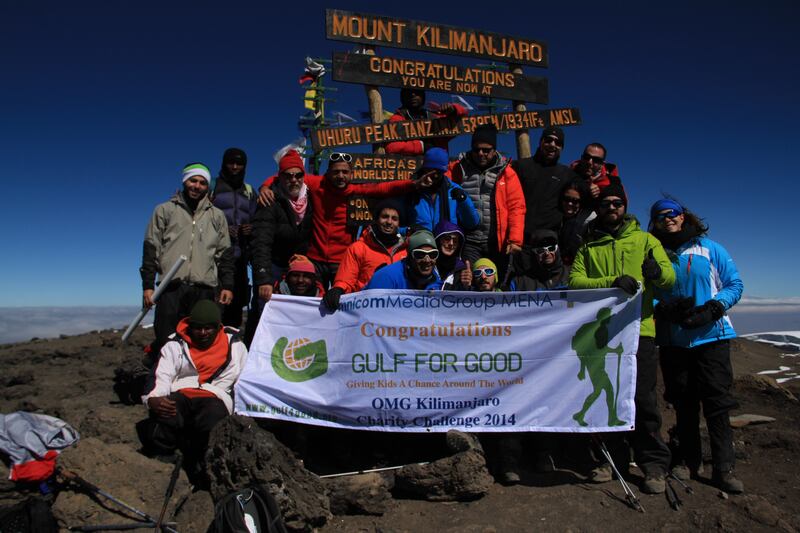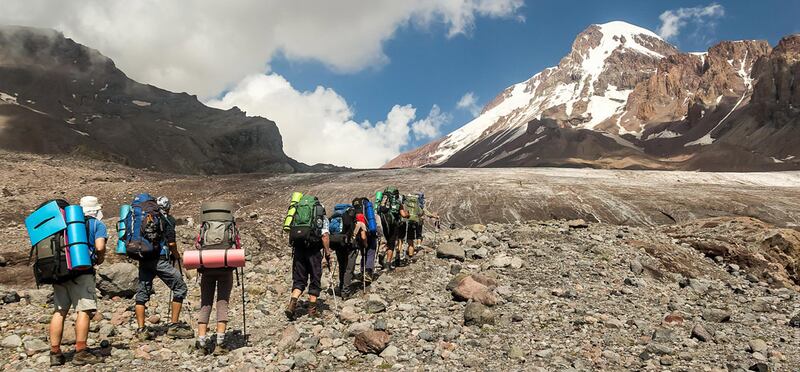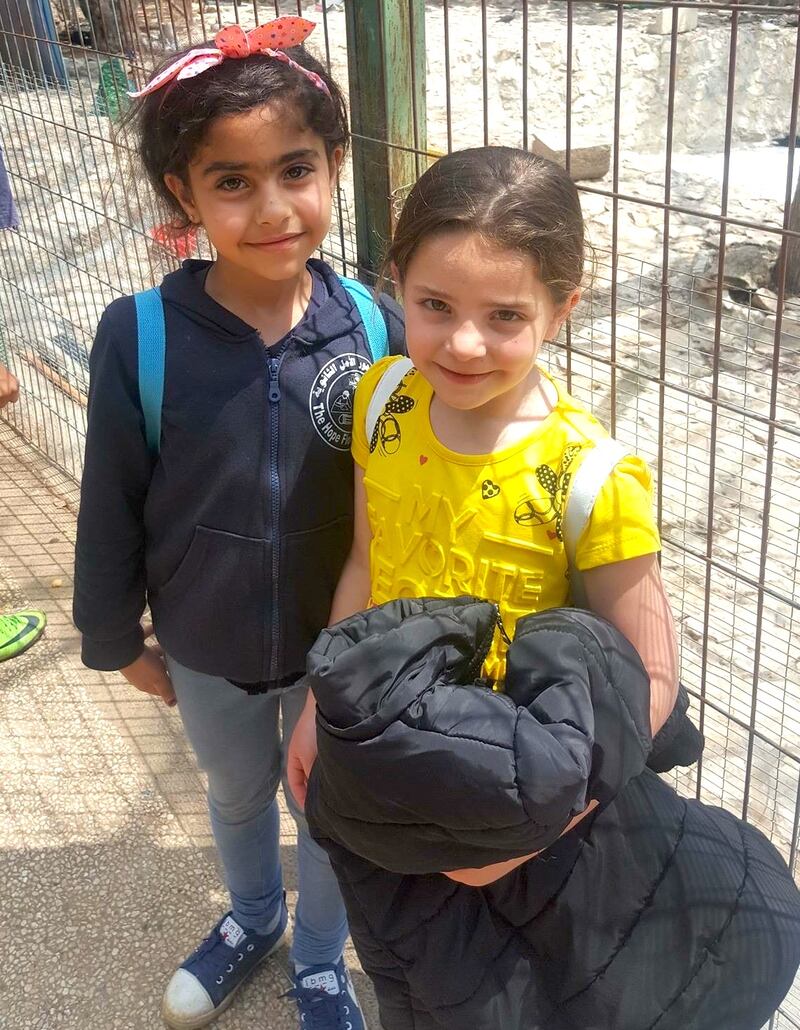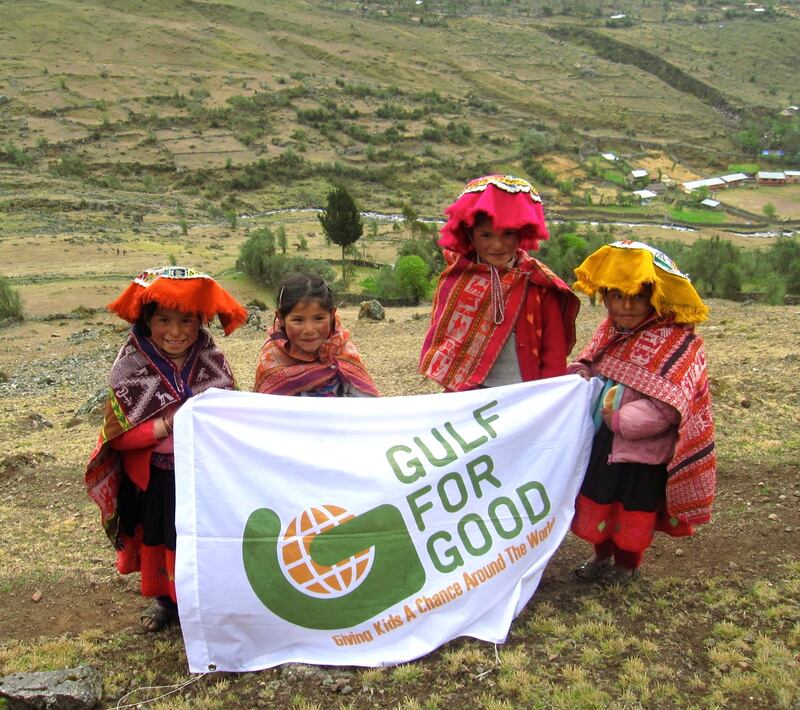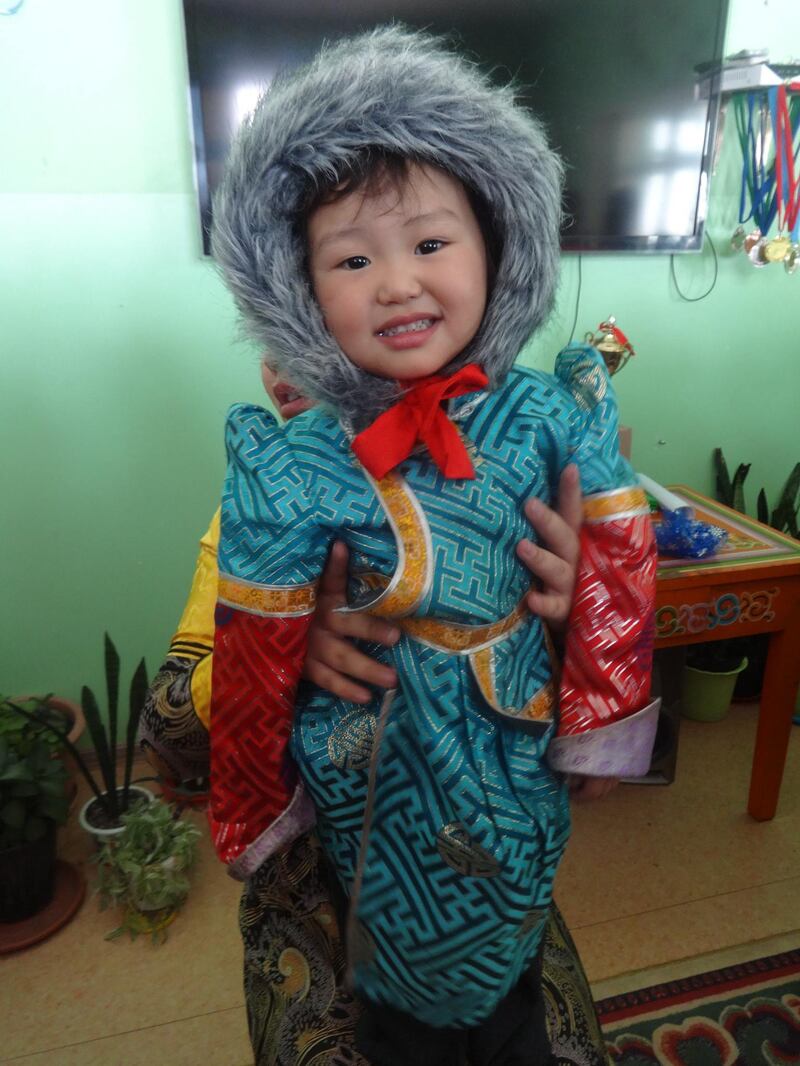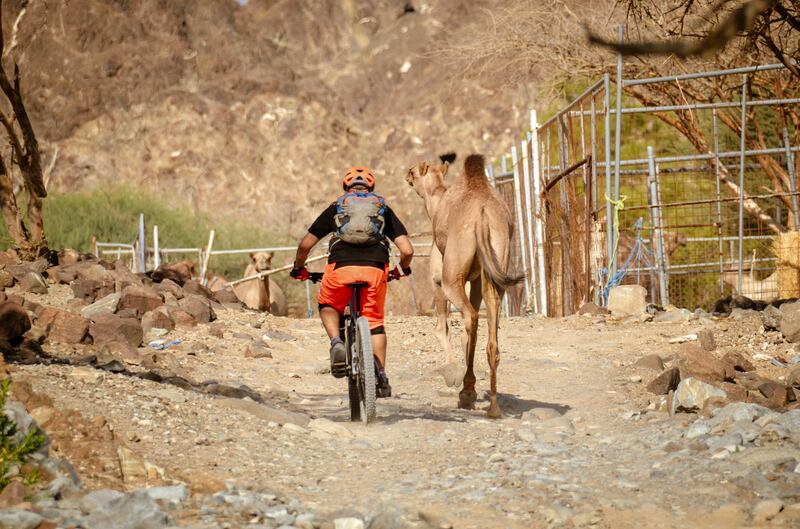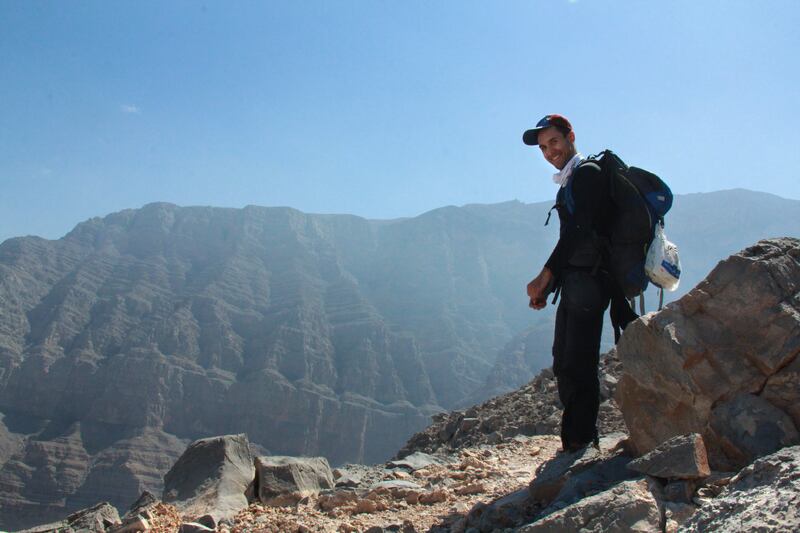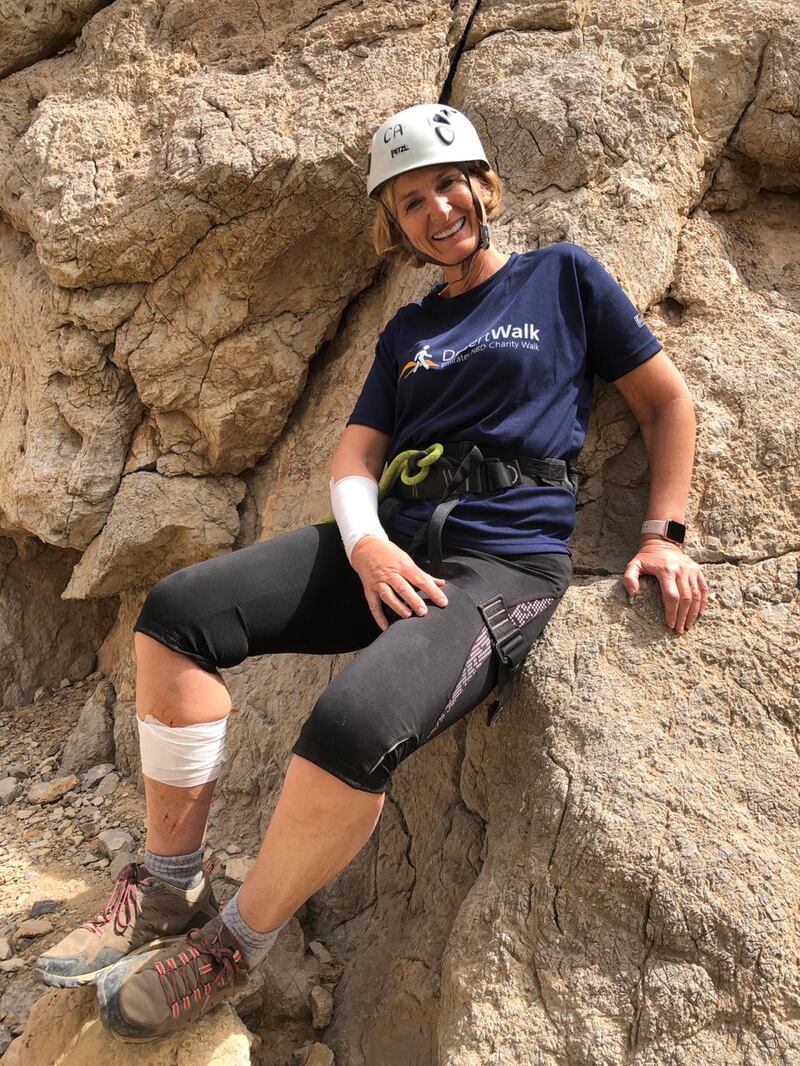The Covid-19 pandemic has made people more aware of the need to help those less fortunate than themselves, a UAE charity chief said.
Anne Edmondson, chairwoman of Gulf for Good, which helps poor children around the world, said she has noticed increased interest in her organisation in recent months.
“We are finding there is a bigger appetite from people to get involved, despite the continuing impact of Covid-19,” she said.
“Maybe it’s because the pandemic has given people time to reflect on what really matters in life and they want to make their actions count.”
Gulf for Good, which is celebrating its 20th anniversary this year, raises money for children in deprived areas by organising events such as hiking and mountain climbing on famous peaks such as Everest and Kilimanjaro.
Ms Edmondson said the eagerness of UAE residents to become involved had not declined despite the obvious hurdles the pandemic had created.
“Maybe it’s because there’s a greater urge to travel now because of the restrictions on movement since the pandemic began,” said Ms Edmondson, who juggles her job as a primary school teacher in Dubai with running the non-profit organisation.
“There’s always been a need to give as well, but maybe people are feeling there is more of a need than ever to help others.”
The organisation was founded in 2001 to raise funds to help buy an ambulance for a war-torn community in Namibia.
This resulted in 49 people climbing Kilimanjaro and raising enough money to buy four Land Rover ambulances in Kenya, Namibia and Tanzania.
In the ensuing decades, the group has organised more than 90 challenges in 27 countries in which about 1,600 people have taken part.
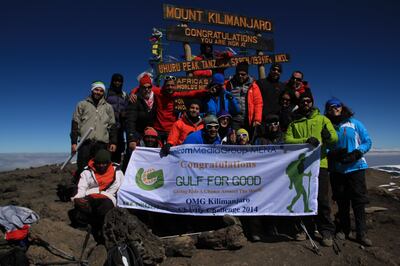
Participation in Gulf for Good events outside the UAE requires a contribution of Dh5,000 per person.
Almost $4 million was raised for 61 charities, and this has been used to build schools, hospitals, homes and playgrounds.
In 202, in the midst of the pandemic, Gulf for Good was still able to raise Dh600,000 for children around the world.
With international travel off-limits, Ms Edmondson and her team had to think outside the box to continue to raise money.
“We had to move to the virtual world and we organised a virtual run of Burj Khalifa, which has now become an annual event,” she said.
The event involves tower runners climbing almost 3,000 stairs to the 160th level of the world’s tallest building, with people able to take part remotely by using stairs in their own homes.
Now that travel restrictions are easing in many places, Gulf for Good has planned a number of events for later this year, including a climb to the Mount Everest base camp in October.
But Ms Edmondson said the uncertainty caused by the pandemic meant the organisation would focus many of its resources close to home in the short-term.
“We’ve had to take a hard look at where we are most likely going to be able to travel,” said Ms Edmondson, from Belfast, Northern Ireland.
“That has pushed us to having a regional focus because it’s more likely we’ll be able to travel without as many complications if we went further.”
Gulf for Good is planning to hold a bike ride in the eastern UAE in December.
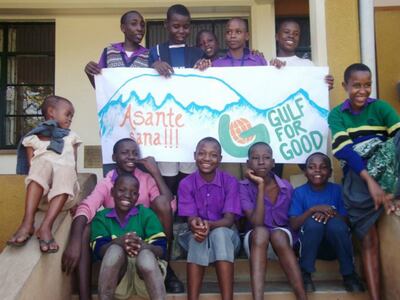
That the charity organises events, rather than simply requiring cash donations, makes it an appealing prospect for many people, she said.
“The mission of Gulf for Good is we want to help children around the world have a happy and sustainable life,” she said.
“But the wellbeing aspect for people taking part is massive. They feel good about themselves for training and climbing the likes of Kilimanjaro.
“It’s very empowering.”
Another unlikely stream of revenue for the charity in the last year was its Thrift for Good spin-off, which helped to raise an average of Dh60,000 a month since opening on The Palm Jumeirah, in Dubai, last year.
“It’s a typical thrift store, like Oxfam back in Northern Ireland,” she said.
“Every man and his dog wanted to use it during the pandemic because people still needed to buy stuff even though they had lost jobs and money was tight.”
The store sells donated clothes that cost between Dh10 and Dh50 per piece.
Gulf for Good is also renowned for organising hikes in the Emirates in the winter season.
“We’ve grown quite a strong hiking community over the years,” Ms Edmondson said.
“We have a full programme ahead and it’s a good way to explore the UAE and the great outdoors.”
